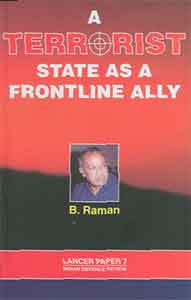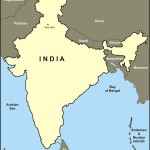In Pakistan, there is also a very strong lobby within the Army not to assist in any US moves to apprehend bin Laden.
“Prince Abdullah made a clandestine visit to Pakistan a few months ago and met senior army officials, he also visited Afghanistan with the Director-General of the powerful ISI, Lieutenant General Mehmood. According to sources, Prince Abdullah met Taliban strongman Mullah Omar and tried to convince him that the United States was likely to launch an attack on Afghanistan and insisted bin Laden be sent to Saudi Arabia, where he would be held in custody and not handed over to any third country. Mullah Omar apparently rejected the Crown Prince’s proposal, saying that despite the threat of US attacks, the question of bin Laden had become one of honour and he would not be handed over under any circumstances.
“As an alternative to snatching him, the US too, would appear to support the idea of bin Laden going to Saudi Arabia. Although aware that Prince Abdullah is almost certain to take over from the ailing pro-US King Fahad, who suffered a stroke in 1995, when he dies, US authorities believe that there is a sufficiently strong US lobby within the country – and sufficient palace intrigues – for them to have their way with bin Laden.
According to sources, Mufti Shamzai threatened the Interior Minister that if any more Arabs were deported from Pakistan, what the jehadi groups did in Pakistan would not be his or anyone elses responsibility.
“Fahad and Abdullah are from the same father, but have different mothers. Abdullah was appointed Crown Prince only because he was next in line, and after his appointment King Fahad posted his own brothers (King Fahad’s mother’s family is known as Sudari and he has seven blood brothers) to important positions to counter Abdullah’s authority as Crown Prince.
“The Governor of the capital Riyadh, the Defence Minister, the Minister of the Interior and the Minister of Foreign Affairs are all Fahad’s brothers. Abdullah’s only power within the Saudi establishment is with the National Baduvian Guards, which is headed by Abdullah’s blood brother. Outside the country, though, there is a strong body of support for Prince Abdullah among those who opposed the US using Saudi Arabia as a base during the Gulf War in 1991.
“In Pakistan, there is also a very strong lobby within the Army not to assist in any US moves to apprehend bin Laden. These include Rawalpindi Corps Commander Lieutenant General Jamshed Guizar (since shifted as Adjutant General by Musharraf), one of the coup leaders of October 12, 1999, Lahore Corps Commander Lieutenant General (Mohammed) Aziz Khan (since kicked upstairs as Chairman, Joint Chiefs of Staff Committee) and Deputy Chief of Army Staff Lieutenant General Muzzaffar Usmani (since prematurely retired).
“This was the strong army backing that enabled a Pakistani religious scholar, Mufti Nizamuddin Shamzai, who is well respected among the Taliban leadership, to put pressure on Pakistan’s Minister of the Interior, a retired Lieutenant General, Moinuddin Haider, not to deport any more Arabs from Pakistan. In the past, Pakistan has deported known associates of bin Ladeh from Jordan, Algeria and Egypt to their mother countries, which in turn have handed them over to the US or other Western countries where they have stood trial for terrorism.
Since its establishment in 1951, the mosque and its madrasa have been in the forefront of the anti-Ahmadiya and anti-Shia movements in Pakistan.
“According to sources, Mufti Shamzai threatened the Interior Minister that if any more Arabs were deported from Pakistan, what the jehadi groups did in Pakistan would not be his or anyone else’s responsibility. Knowing the support Shamzai has, and the vulnerability of the government if they were to retaliate against jehadi forces in the country, the Interior Minister has subsequently not sanctioned the deportation of Arabs. This is a strong example to the government of the opposition it will face should it allow Pakistani soil to be used for a raid into Afghanistan to capture bin Laden.”
Shamzai was a member of the Ulema delegation which went to Kandahar on September 28, 2001, along with Lt Gen Mahmood Ahmed, then OG, ISI, for discussions with Mullah Omar on the bin Laden issue. The other members were Mufti Saleemullah, Mufti Taqi Usmani, Mufti Mohammed Jamil, Maulana Fazale Rahim, Qari Saeedur Rehman, Maulana Abdul Ghani, Maulana Mohammed Hasan Jan, Qari Mufti Sher Ali Shah and Maulana Haji Abdul Rehman.
The Darul Uloom Islamia Binori Town mosque in Karachi has one of the largest religious seminaries in Pakistan. It is perceived as one of the most influential centres of hardline Oeobandi Sunni Muslim ideology in the world. Along with the Akora Khattak madrasa – the largest seminary in Pakistan the Binori Town madrasa has imparted doctrinal training to the leading lights of the Taliban as well as to men like Maulana Azam Tariq, of the Sunni extremist Sipah-e- Sahaba (Soldiers of the Prophet’s Companions).
Since its establishment in 1951, the mosque and its madrasa have been in the forefront of the anti-Ahmadiya and anti-Shia movements in Pakistan. It imparts religious education to some 3,500 students at one time, most of them drawn from Afghanistan and the Pushto-speaking areas of Pakistan’s NWFP. Students also come from Africa, the Philippines and Malaysia. It has a large number of smaller affiliated madrasas, both within and outside Karachi.
 It is funded by Muslims in the United States, Britain, France, Saudi Arabia, Germany, Switzerland and other countries. Many of the Taliban leaders and militia studied here. It is suspected to have played an active behind-the-scene role in the Kandahar hijacking of an Indian Airlines plane in December, 1999, and in the terrorist strikes in the US on September 11, 2001.
It is funded by Muslims in the United States, Britain, France, Saudi Arabia, Germany, Switzerland and other countries. Many of the Taliban leaders and militia studied here. It is suspected to have played an active behind-the-scene role in the Kandahar hijacking of an Indian Airlines plane in December, 1999, and in the terrorist strikes in the US on September 11, 2001.




